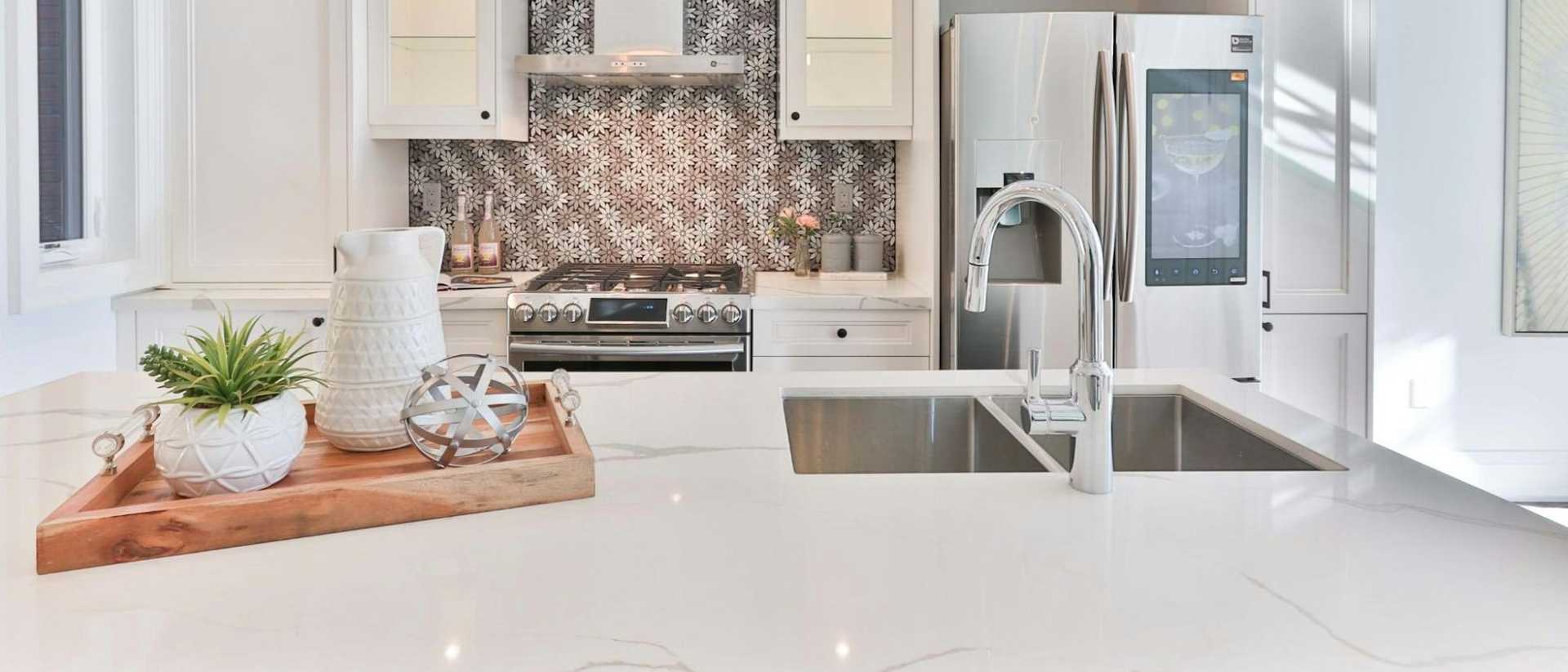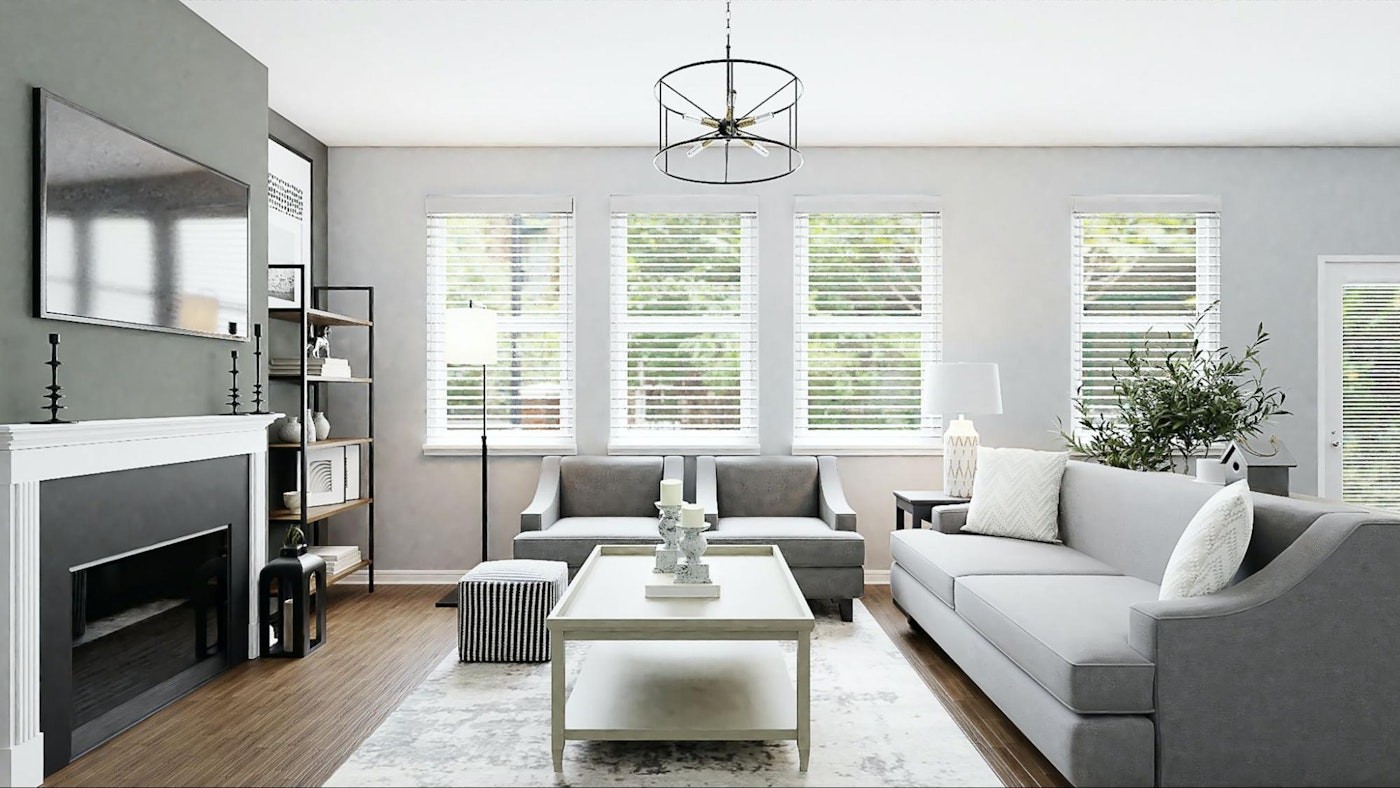Renovation Loan Vs. Personal Loan: Which is Right for Your Project?

Embarking on a home renovation project is an exciting endeavour that allows you to transform your living space into something new and refreshing. However, one of the crucial aspects of any renovation project is financing. When it comes to funding your home renovation, you have several options available, with renovation loans and personal loans being two popular choices. In this blog post, we will delve into the differences between renovation loans and personal loans, highlighting their key features and helping you determine which option is the right fit for your project.

Renovation Loans:
Renovation loans, also known as home improvement loans or home renovation loans, are specifically designed to fund home improvement projects. These loans are secured by your property and typically require some form of collateral, such as your home's equity or the renovated property itself. Renovation loans are purpose-specific, meaning they are intended solely for home improvement projects, making them a suitable option if you have specific renovation plans and require a substantial amount of funding.
One of the significant advantages of renovation loans is that they often provide higher loan amounts compared to personal loans. Since these loans are based on the value of your property and the estimated cost of the renovation, they can be advantageous if you have major renovations or structural changes planned. Additionally, renovation loans generally offer longer repayment terms, spreading the cost over a longer period. This can help ease the financial burden by offering lower monthly instalments.
Another potential benefit of renovation loans is that, in certain countries, the interest paid on these loans may be tax-deductible. This provides a financial advantage for homeowners. However, it's important to consult with a tax professional to understand the specific tax implications in your region.
- Purpose-specific:
Renovation loans are intended solely for home improvement projects, making them a suitable option if you have specific renovation plans and require a substantial amount of funding. - Higher loan amounts:
Renovation loans often provide higher loan amounts than personal loans, as they are based on the value of your property and the estimated cost of the renovation. This can be advantageous if you have major renovations or structural changes planned. - Longer repayment terms:
Due to the larger loan amounts, renovation loans generally offer longer repayment terms, spreading the cost over a longer period of time. This can help ease the financial burden by offering lower monthly instalments. - Tax benefits:
In certain countries, the interest paid on renovation loans may be tax-deductible, providing potential financial advantages. Consult with a tax professional to understand the specific tax implications in your region.

Personal Loans:
Personal loans, on the other hand, are unsecured loans that can be used for various purposes, including home renovations. Unlike renovation loans, personal loans do not require collateral and are based primarily on your creditworthiness. Personal loans offer greater flexibility in terms of usage, allowing you to use the funds for a variety of purposes beyond home renovations, such as debt consolidation, medical expenses, or travel.
Personal loans usually provide smaller loan amounts compared to renovation loans. If your renovation plans are relatively modest, a personal loan may be sufficient to cover the expenses. However, it's important to note that personal loans typically have shorter repayment terms. This means you'll need to repay the loan over a shorter period, resulting in higher monthly instalments but potentially reducing the overall interest paid.
Personal loans often have a faster approval process compared to renovation loans. If you require immediate funding for your project, a personal loan can be a viable option. The quick approval process can help you get started on your renovation project without delays.
- Flexibility:
Personal loans offer greater flexibility in terms of usage. You can use the funds from a personal loan for a variety of purposes beyond home renovations, such as debt consolidation, medical expenses, or travel. - Smaller loan amounts:
Personal loans usually provide smaller loan amounts compared to renovation loans. If your renovation plans are relatively modest, a personal loan may be sufficient to cover the expenses. - Shorter repayment terms:
Personal loans typically have shorter repayment terms compared to renovation loans. This means you'll need to repay the loan over a shorter period, resulting in higher monthly instalments but potentially reducing the overall interest paid. - Quick approval process:
Personal loans often have a faster approval process compared to renovation loans. If you require immediate funding for your project, a personal loan can be a viable option.

Choosing the Right Option:
Deciding between a renovation loan and a personal loan depends on various factors, including the scale of your renovation project, your financial situation, and your preference for collateral. Consider the scope of your project and the amount of funding required. If you have extensive renovation plans that require significant funding, a renovation loan might be a better choice.
Evaluate your financial situation and collateral availability. If you have substantial equity in your home and are comfortable pledging it as collateral, a renovation loan can provide higher loan amounts and longer repayment terms. However, if you're uncomfortable pledging collateral, a personal loan offers a collateral-free option.
Additionally, consider the time sensitivity of your project. If your renovation project is time-sensitive and requires quick funding, a personal loan may be more suitable due to its faster approval process.
Lastly, assess your budget and repayment capacity. Smaller projects with manageable costs may be well-suited for a personal loan with shorter repayment terms, whereas larger-scale renovations might require the extended repayment period offered by a renovation loan.
Ultimately, choosing between a renovation loan and a personal loan depends on your specific needs and circumstances. Carefully evaluate the features, benefits, and limitations of each option before making a decision. It's also advisable to consult with financial professionals or loan specialists who can provide personalised.
- Project scope:
If you have extensive renovation plans that require significant funding, a renovation loan might be the better choice due to its higher loan amounts and longer repayment terms. - Collateral availability:
Renovation loans require collateral, such as your home's equity, which can be advantageous if you have substantial equity available. If you're uncomfortable pledging collateral, a personal loan provides a collateral-free option.

Summing Up
When it comes to financing your home renovation project, choosing between a renovation loan and a personal loan requires careful consideration. Both options have their advantages and limitations, and the decision ultimately depends on your specific project requirements and financial circumstances.
Renovation loans are purpose-specific and provide higher loan amounts, longer repayment terms, and potential tax benefits. They are ideal for larger-scale renovations and homeowners with substantial equity in their properties. On the other hand, personal loans offer flexibility, quick approval processes, and shorter repayment terms. They are suitable for smaller projects or individuals who prefer a collateral-free option.
To make an informed decision, Driva can help you to evaluate the scope of your renovation project, your available collateral, and your repayment capacity. Consider factors such as the loan amount needed, the urgency of funding, and your comfort level with pledging collateral. Consulting with financial professionals or loan specialists can provide valuable insights and help you determine the most appropriate financing option for your project.
FAQ’s:
What is the main difference between a renovation loan and a personal loan?
The main difference lies in their purpose and collateral requirements. Renovation loans are specifically designed for home improvement projects and are secured by collateral, such as your property's equity. Personal loans, on the other hand, can be used for various purposes and typically don't require collateral.
How do I determine which loan option is right for my renovation project?
Consider the scale of your project, the funding amount needed, your available collateral, and your repayment capacity. If you have substantial equity and require a larger loan amount with longer repayment terms, a renovation loan may be suitable. If your project is smaller in scale and you prefer a collateral-free option, a personal loan might be more appropriate.
Are renovation loans more expensive than personal loans?
The cost of the loan, including interest rates and fees, can vary depending on the lender and your financial profile. Generally, renovation loans may have slightly lower interest rates due to their collateral requirement, but it's important to compare offers from different lenders to determine the most cost-effective option for your specific circumstances.
Can I use a personal loan for home renovations?
Yes, personal loans can be used for home renovations. They offer flexibility in terms of usage, allowing you to allocate the funds towards your renovation project. However, keep in mind that personal loans usually provide smaller loan amounts and shorter repayment terms compared to renovation loans.
Which loan option has a faster approval process?
Personal loans typically have a faster approval process compared to renovation loans. They often involve less paperwork and verification since they don't require collateral. If you need immediate funding for your renovation project, a personal loan can be a quicker option.
Are the interest payments on renovation loans tax-deductible?
In some countries, the interest paid on renovation loans may be tax-deductible. However, tax laws and regulations vary by jurisdiction, so it's important to consult with a tax professional or financial advisor to understand the specific tax implications in your region.
Can I prepay or pay off my renovation loan or personal loan early?
Most lenders allow borrowers to prepay or pay off their loans early. However, it's essential to review the terms and conditions of the loan agreement to understand if any prepayment penalties or fees apply. If you have the means to do so, paying off your loan early can help save on interest costs.
Remember, it's always advisable to consult with financial professionals or loan specialists to discuss your specific needs and get personalised advice based on your financial situation and the details of your renovation project.


.png)







